Van der Poel’s quiet but focused prep earns praise from national coach: "Not much racing, but very good preparation"
CyclingMonday, 24 June 2024 at 10:17
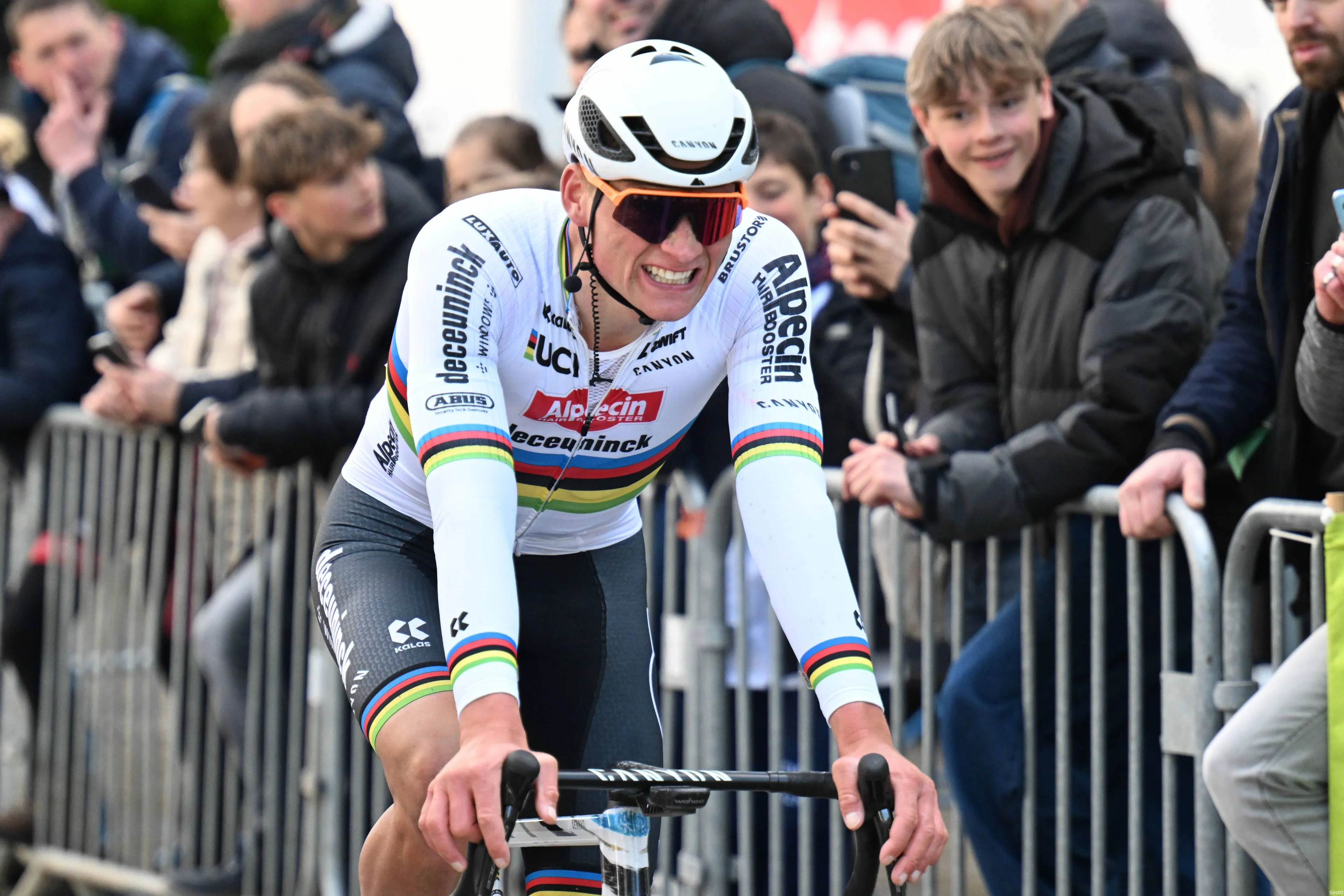
This coming Saturday, Mathieu van der Poel will resume competition in the Tour de France after a two-month absence, marking the start of an important summer for him. A key focus during this period will be the Paris Olympics, where he aims to start with title aspirations. How does Dutch national coach Koos Moerenhout feel about the situation?
IDLProCycling.com spoke with Moerenhout ahead of the Dutch National Championships in the city of Arnhem. The national coach, who does not attend many races, usually makes an exception for the national championships. Last Wednesday, the time trial championships were held in his hometown of Steenbergen, also in the Netherlands, where he received special honors as a surprise.
On May 29, Moerenhout announced his selection for the Paris Olympics, comprising Van der Poel, Daan Hoole (also for the time trial) and Dylan van Baarle. Just one week later, he had to rethink his plans as Van Baarle broke his collarbone in a massive crash at the Critérium du Dauphiné. "Dylan is positive about the situation. His training feels good, so at this moment, the plan remains as it is. I'm happy with that and have confidence in our approach. The feedback I get from Dylan is good. He is currently training in Tignes and should be ready in time," said Moerenhout, who we gather does not expect to make any changes.
Moerenhout's statements in the press release issued by the Royal Dutch Cycling Union already made it clear: the Netherlands is aiming for Olympic gold. "By now, everyone knows that I'm glad Mathieu has decided to only ride the road race in Paris. With a clear focus and a solid route building up to the Olympics, we're aiming for success with this team once again. The course takes the riders through the streets of all of Paris, and particularly the climbs around Montmartre present opportunities," he stated succinctly at the time.
Moerenhout pleased with Van der Poel's choice: "More a copy-paste story from the World Championships"
For a long time, mountain biking was also in the cards for Van der Poel, but how was the final decision made? "Mathieu was allowed to make that decision himself. The world title in Glasgow and this year's preseason probably contributed to his thinking it would be too difficult to bet on two horses. You never have a guarantee for Olympic medals, even on the road. But if he's as dominant as he was in the spring, then he has a good chance."
"That being said: we can't say for sure until the race is over," Moerenhout states realistically. "I was pleased with his decision. It removes some uncertainties. He hasn't ridden on the mountain bike for a while, so if he had gone down that path, he would have had to make some concessions. Now, it's more a copy-paste story from last year's World Championships. That preparation is there, so hopefully, the result will be too."
On paper, it's definitely a perfect circuit for the Alpecin-Deceuninck world champion. "I've scouted the course in Paris, Mathieu hasn't been there. It's a fairly open course, with many contenders. It's only a peloton of seventy riders and small teams, but the course is still 275 kilometers," said the selector.
Continue reading below the photo.
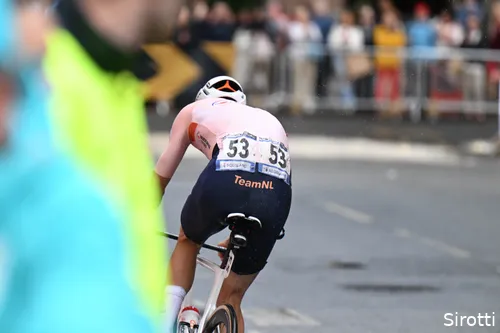
"A lot can happen, which is why we also chose to bring Daan Hoole to keep the race under control. It could also happen that after ten kilometers ten riders break away, with strong countries included. And who will then go for it?" Belgium, France, Italy, Denmark, perhaps? "We're not in touch with other countries about this, but you can see it in the selections and the reasoning behind them. Other countries also weigh this up, some national coaches will spread their chances. For instance, I could have brought Olav Kooij.'"
But Moerenhout did not do that. "It's a popular race, but most riders can do the math when you can only bring three riders. But Olav, for example, would have liked to go. And that's also a realistic wish, but it's a tactically explainable thing. And then he understands that, even though it's disappointing. The only clarity I can provide is why I made that choice."
"I was glad that Olav rode the European Championships last year because it's still a learning curve for him," he continues about the young, strong Visma | Lease a Bike rider. "He is still discovering himself. We all know his qualities in sprints, but now there's also his development towards being a classic rider. He is very ambitious in that, and it's very interesting for me to see."
Moerenhout on team play at championships: "I do mention that"
So, instead of Kooij, Hoole was selected. "He was a bit bewildered. Of course, there were multiple options, but Daan is someone who performs his tasks very well within his team. Also, the Olympic time trial is an extra incentive for him since it's his specialty. So you have to keep building on that, but it's secondary to the road race."
Hoole is usually a teammate of Mads Pedersen at Lidl-Trek, while Van Baarle typically races with Christophe Laporte and Wout van Aert. Does that impact these races? "I do mention that," confirms Moerehout. "Daan's role is naturally different, he's not expected to ride the finale. Van der Poel and Van Baarle can figure it out with Pedersen. It's also a bit political, you have to make smart choices. Daan is neutral in relation to Dylan and Mathieu. So far, I haven't had any problems with that as a national coach, but it's also up to me to lead those group processes."
Continue reading below the photo.
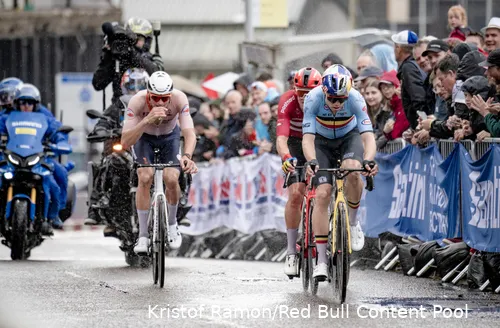
So far, Moerenhout is managing well, especially by keeping a distance. "I of course don't interfere with Alpecin-Deceuninck's tactics in the Tour, but last year's approach was obviously successful. It was a sensible way of racing in the Tour," he says about his team leader Van der Poel, with a caveat. "If you have to turn yourself inside out every day, it's also questionable whether that's ideal. On the other hand, look at Dylan van Baarle, who was indeed very active every day in his role. He also did well in Glasgow." Last year, MVDP mostly picked his days and worked as a lead-out for Jasper Philipsen, Alpecin-Deceuninck's star sprinter.
The fact that Van der Poel hasn't raced much before the Tour is a smart move according to Moerenhout. "His entire trajectory is focused on the Tour and the Olympics. He hasn't done much racing, but he has had a very good preparation at altitude. Now he'll start racing again in the Tour, but in terms of freshness, that's ideal. Because that's also how it is in the Tour: it's the only race where you can come out completely wrung out, mentally and physically."
How have the conversations between national coach and rider gone over the past few weeks? "You keep in touch all year long, but those are often short conversations that really matter. I leave him alone as much as possible. We both know how the other person works, there are already so many people who want something from him."
Van der Poel embodies Olympic spirit, also defends title at World Championships
This year, Moerenhout and Van der Poel are in touch more frequently due to the Olympics and the World Championships. In Zurich, Van der Poel will defend his title as the reigning champion. "Mathieu is really a championship rider. He can handle almost all courses. Rwanda might be a climbing course next year, but Zurich should be doable for him," says the national coach, who seems to disagree with course designer Olivier Senn. The latter suggested that the course was on the limit for the Dutchman. "It's a bit of a crossover between the Amstel Gold Race and Liege-Bastogne-Liege. So I do have confidence in that, that it should work. But he will need to be at his best to do well there."
But first, the Olympics, in which Moerenhout himself once participated in 2000 – Sydney. Different times. "I feel that the feeling leading up to the Olympics has changed. In Tokyo three years ago, you could really see that the men were still focused on the Olympics after the Tour. I thought that was a very nice realization because back when I was racing, it was different. Then it still had to grow, but maybe the experience is less fun now. You arrive just beforehand and leave right after, so there is less opportunity to go see other sports, for example. That Olympic feeling, we're also not in the Olympic village, that's somewhat gone. But it does live on, you can see that in someone like Mathieu."
IDL-productions
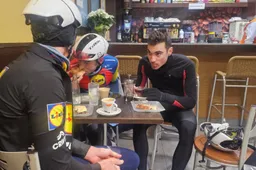
Still in black, but soon in colorful Lidl-Trek jersey: Juan Ayuso praises new environment
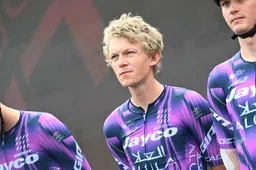
Bouwman not afraid to change at 32 after first disaster year outside of Visma: 'Have to be honest with myself'
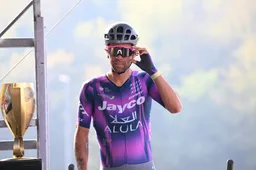
Sanremo, a world title and the yellow jersey: Michael Matthews escaped death - and that reignited his spark
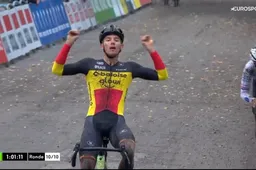
Unlike road colleagues Van der Poel or Van Aert, Nys rides twice as many cyclo-crosses: 'He doesn't want to ride only ten cyclo-crosses'
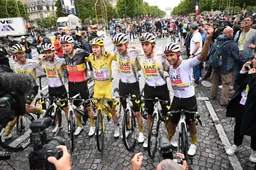
95 (or was it 97?) wins and a new record year, but losing that one race still hurts UAE Team Emirates - XRG
Latest Cycling News
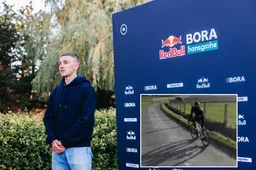
Evenepoel reignites hopes with training ride on Tour of Flanders-parcours, but Gilbert dismisses rumours with a laugh
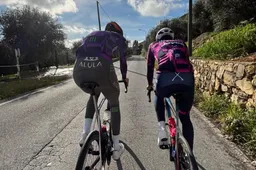
'I miss you, little brother'; Emotional words of Jayco-rider after tragic loss of friend and young talent (19)
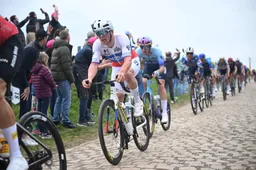
Unibet Rose Rockets and Kubis proved their colleagues wrong: 'We got zero respect'
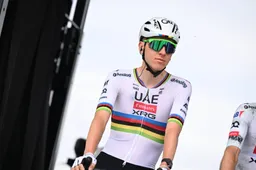
Tadej Pogacar again aims for Roubaix win... With help from F1 driver Sainz? 'Know I'm in good hands'
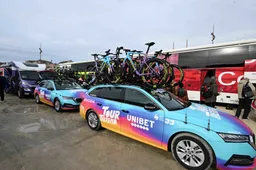
British Paris-Roubaix specialist leaves Red Bull-BORA-hansgrohe and becomes new sports director at Unibet Rose Rockets
Popular Cycling News
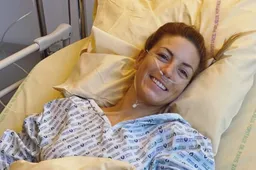
How a nearly untraceable issue almost made Ferrand-Prévot retire: 'It easily ruined two years of her career'

Tadej Pogacar again aims for Roubaix win... With help from F1 driver Sainz? 'Know I'm in good hands'

'I miss you, little brother'; Emotional words of Jayco-rider after tragic loss of friend and young talent (19)

Still in black, but soon in colorful Lidl-Trek jersey: Juan Ayuso praises new environment

British Paris-Roubaix specialist leaves Red Bull-BORA-hansgrohe and becomes new sports director at Unibet Rose Rockets
Latest Comments
- Those events are mental rest for him. Fun, without expectations. *Sagan lost his abilities because he gained weight and got lazy. Pogi will likely retire before that has a chance at happening.Veganpotter14-12-2025
- Ah, the consequences of riding for Israel.Veganpotter11-12-2025
- Pidcock could follow everyone but Pogi while finishing 3rd. No second place rider this season😃Veganpotter16-11-2025
- Now the Palestinian protestors can stop their whining. Trump came to the rescue. So they can now STFU and go back to waving the rainbow flags.raufus15-10-2025
- Cracked the code lol. If it was that easy to 'crack the code' jonny Vegas would be charging up the Kwaremont giving Pog a dose of his medicine. Evenepoel can't match pog on a climb and neither can mvdp. Anything with a half difficult climb and Pog smashes the field. Even on flat(ish)parcours like Roubaix it came down to a mistake and crash by pog to definitively crown mvdp. MSR is the only one that Pog probably won't win.kevpt10-10-2025
- We've seen this movie before. I think Pogacar is doping.DeadBlow10-10-2025
- 👍Bea08-10-2025
- 👌🏻Bea08-10-2025
- What the data doesn't show is how much of an effect drafting had for evenepoel. Pogacar went with del toro at 100km whilst Evenepoel was still in the bunch. Despite the bike changes he still had a lot of assistance getting back to the bunch. Pogacar then rode 60km solo whilst evenepoel rode with Healy/Skjelmose until going solo in thd last 10-15km. Thats ~20% less power / energy requirements for 45-50km. Apples and oranges...kevpt30-09-2025
- 👏👏Bea24-09-2025
Loading